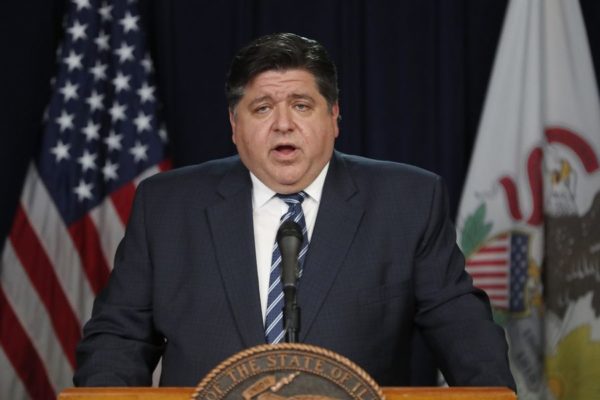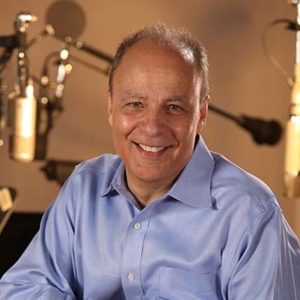
Training grants now available to expand career training programs for youth at-risk for dropping out or falling behind on career preparation
PEORIA, IL—Governor JB Pritzker today announced new investments to the Youth Career Pathways program that will expand training for Illinois youth who face barriers to education, training, and employment. Through a Notice of Funding Opportunity (NOFO) released by the Department of Commerce and Economic Opportunity (DCEO), Illinois will expand access to training and support services for youth ages 16-24 and who are most at-risk for falling behind on career preparation. Applications for the NOFO are due on April 1, 2021, at 5:00 p.m. To apply for the NOFO, please visit DCEO’s website.
Grant dollars provided by the State will assist workforce providers across Illinois in increasing the availability of training programs that help youth obtain marketable skills that prepare them for the next step of their postsecondary journey. New through the expanded program this year, the state will prioritize youth in disproportionately impacted areas of the state and who are at risk for dropping out and falling behind on career preparedness, including youth of color and those residing in rural communities.
“With an expansion of our youth training programs, not only will we prepare more of Illinois’ youth for jobs, but we will ensure they are ready to hit the ground running for the careers of the future,” said Gov. Pritzker. “An investment in our youth is an investment in the future of Illinois – which is why my administration is working to make high quality training programs accessible for residents in every community across our state. Through these investments in the Youth Career Pathways program, we will bring educators, workforce partners and employers to the table to ensure those who’ve previously faced barriers in their education get the support needed to reach their goals.”
“As a former youth outreach worker, I know how important these investments to expand youth training will be in helping to remove barriers for youth seeking well-paying careers as well as building a pipeline of well trained talent for employers,” said Acting Director Sylvia Garcia. “Under the leadership of Governor Pritzker, DCEO continues to make key investments that support the efforts of our dedicated workforce training partners, that will help attract new companies, and support the needs our current businesses have for skilled workers.”
All training participants will receive access to training in different career sectors, and an opportunity to obtain an industry-recognized credentials and explore hands-on training through work-based learning opportunities. For the first time, this year’s program will prioritize specific populations of hard-to-reach youth, aged 16-24, with funding set asides to serve these populations. This includes the following target populations:
o Youth at risk for dropping out
o Youth leaving the juvenile justice system
o Youth experiencing homelessness
o Youth aging out of foster care
o Youth with a disability
o Youth without access to credential programs
“The Illinois Community College Board is proud to be a part of this valuable program to better serve our youth, particularly those who face barriers to education and employment,” said Illinois Community College Board (ICCB) Director Brian Durham. “As Illinois’ main engine for workforce and career training and development, Illinois’ 48 community colleges stand ready to prepare youth for future career opportunities and work with employers around the state to meet their needs.”
In an effort to better align state resources to serve the needs of these populations, the expanded training program was informed by DCEO’s work with several state agencies charged with implementing youth and workforce programming around the state, including: the Illinois State Board of Education (ISBE), the Illinois Community College Board (ICCB), the Department of Human Services (DHS), and the Department of Children and Family Services (DCFS).
“Now more than ever, it’s imperative that we give our youth – our future – the necessary tools to succeed. Youth Career Pathways will provide a seamless, ongoing delivery of programming between Illinois’ secondary and postsecondary education systems,” said State Superintendent of Education Carmen I. Ayala. “This funding continues the State of Illinois’ commitment to empower and support all youth to help them achieve their life and career goals through equitable access to high-quality career and technical training opportunities.”
These latest investments in workforce by the Pritzker administration align with a regional economic development strategy undertaken by DCEO to pair trainings with the needs of Illinois employers today. While training programs may vary by location/provider, the goal is to boost access to training for some of the most in-demand fields in Illinois today: including construction, manufacturing, information technology, transportation & logistics, and more.
“The Workforce Innovation Board of Local Area 15 supports the Governor’s vision to ensure collaboration among education, workforce, economic development and required partners as they provide program participants the ability to move along their chosen career pathway,” said Steven Martin, Executive Director of Career Link. “With expanded programs by the state playing a key role in enhancing collaboration, our goal is to seize opportunities that will lead more you to high paying jobs in growing sectors of the economy – offering new opportunities for stable employment and, ultimately, assisting businesses in our region to be competitive in a global economy.”
The NOFO is seeking proposals from school districts, community colleges, community-based organizations and other partners equipped to provide workforce development training that will help vulnerable youth gain access to skills training and work-based learning that will prepare them for job entry.
Training grants through the Youth Career Pathways program were issued most recently in 2018, providing service to more than 200 participants—with the majority of trainees in the last round of the program identifying as racially diverse. Working in collaboration with state agencies and workforce partners, DCEO has identified that this program should continue to adhere to equity goals outlined in statute as it is expanded to reach new communities statewide. DCEO will prioritize funding to projects that aim to serve targeted populations identified for serving youth most at-risk for falling behind on career preparedness.
“This is an important investment in our next generation of leaders,” said Senate Majority Leader Kimberly A. Lightford (D-Maywood), a passionate proponent of increasing opportunities for underserved youth. “This program, which provides services to help uplift our at-risk youth in addition to teaching them an in-demand job skill, can help break the vicious cycle of poverty and end systemic racism.”
Applicants eligible for the program include community colleges, community-based organizations, workforce agencies, school districts and other entities with a demonstrated plan to serve the target populations with postsecondary training and credentialing. Applicants must demonstrate that they have at least one employer partner established, that programming has a work-based learning component, and leads to a recognized post-secondary credential. Recognizing that youth may require other supports to help ensure their education, the NOFO also requires applicants/training orgs to provide wraparound supports for the populations they seek to serve – whether it is housing, transportation, or other specialized needs.
“The Youth Career Pathway is crucial to our state as we continue to fight our way through this pandemic. Providing funding and resources to community organizations that are directly connected to the underserved communities they work with is tantamount to providing the students across this state with the tools they need to join an ever-changing workforce, and this grant does both.” said House Majority Conference Chairperson Carol Ammons (D-Urbana). “I am consistently impressed with the Governor’s administration and their capacity for listening to the needs of the people and their dedication to serving our state’s most vulnerable communities.”
“Providing career training opportunities for Illinois youth, especially those who are at risk, is a critical tool in helping young people reach their full potential and achieve their goals,” said State Representative Jehan Gordon-Booth (D-Peoria). “I would like to thank Governor Pritzker for his ongoing commitment to uplifting young Illinoisans and investing in communities that have been historically underserved.”
The expanded youth training programs help deliver on a central premise of the Governor’s 5-year economic plan, which calls for investments in training programs that help students build the skills they need to seize in-demand jobs while meeting the needs of employers. It also follows on record investments in apprenticeships programs as well as training programs designed to help workers upskill or re-enter the job force as a result of impacts faced during the pandemic.














